Food, family, money: What Chinese New Year looks like on the country’s biggest social network
Major cities across the globe celebrated Chinese New Year this weekend (Feb. 6-7) with light shows, dragons, lanterns, and shopping sprees. Facebook CEO Mark Zuckerberg rolled out his awkward Chinese to wish the world a happy new year; schools in New York are even closed today (Feb. 8) to mark the celebration.
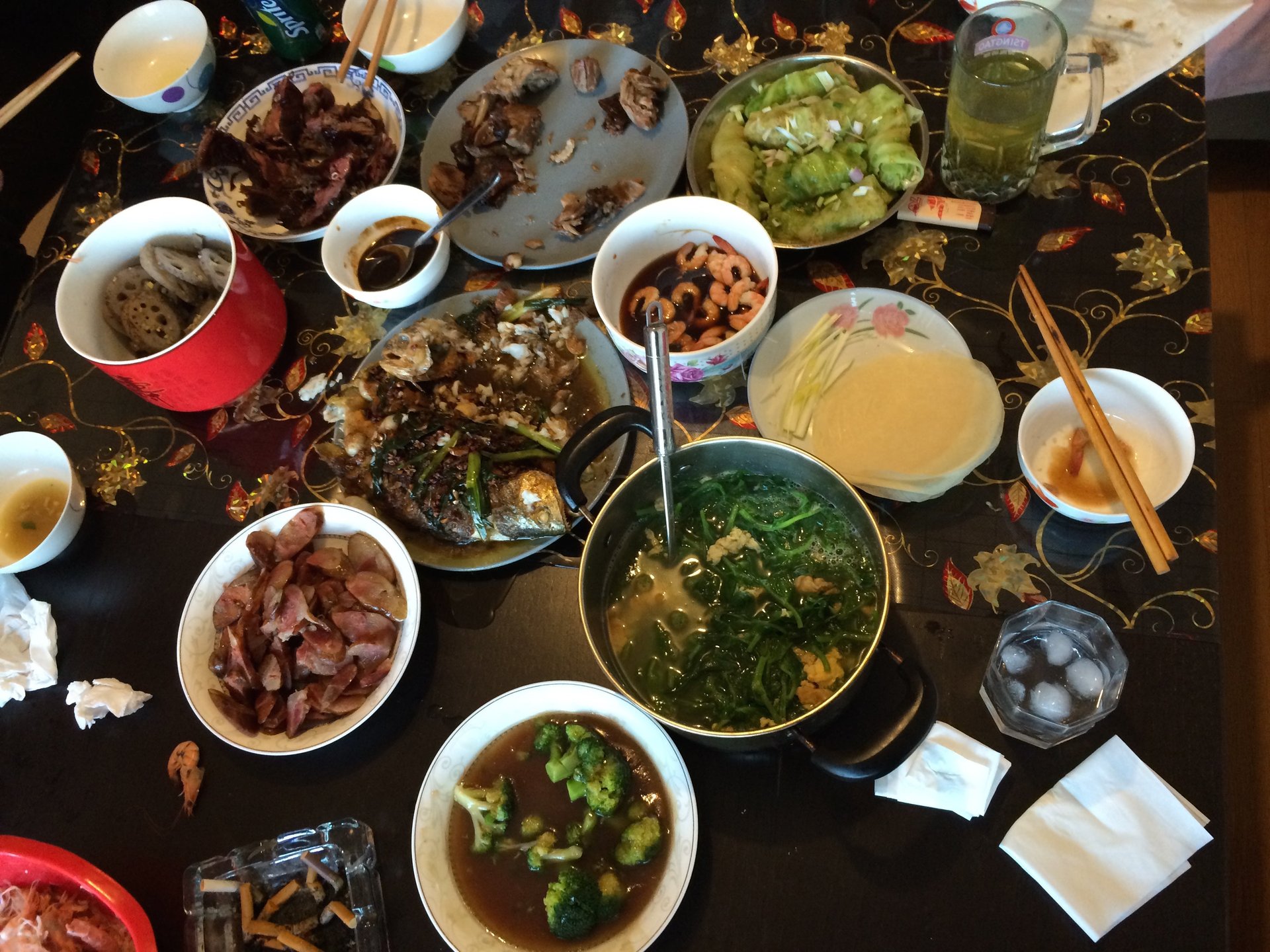

Major cities across the globe celebrated Chinese New Year this weekend (Feb. 6-7) with light shows, dragons, lanterns, and shopping sprees. Facebook CEO Mark Zuckerberg rolled out his awkward Chinese to wish the world a happy new year; schools in New York are even closed today (Feb. 8) to mark the celebration.
And as with major holidays elsewhere, you can see the effects of Chinese New Year ripple through social media. In China, the primary social media platform is WeChat, which is part WhatsApp, part Facebook, with the former’s direct messaging and the latter’s wall for posts.
While family is central to new year celebrations, WeChat posts seem to highlight three specific themes of the holiday: food, relationships, and money.
Relationships
The lead-up to the new year often includes meals with business partners, colleagues, and people with whom you might want to maintain a good relationship.
On Saturday (Feb. 6, the day before new year’s eve), a Chinese friend and business owner invited me to a dinner with his partners and a government official. He brought four bottles of Maotai, a brand of rice wine (baijiu) so famous for its expensive price tag that the government has banned officials from buying it. In total, the bottles set him back by 8,000 yuan ($1,200). No photos were allowed at the dinner, but images of baijiu appear across WeChat this time of year.

Of course, you can’t visit everybody in person for the holiday. That’s why long, flowery, sometimes sickly sweet greetings and messages suddenly dominate the platform. Below is a typical example. Nobody believes the sender took the time to write such a message, but it could be seen as poor form to not send anything.
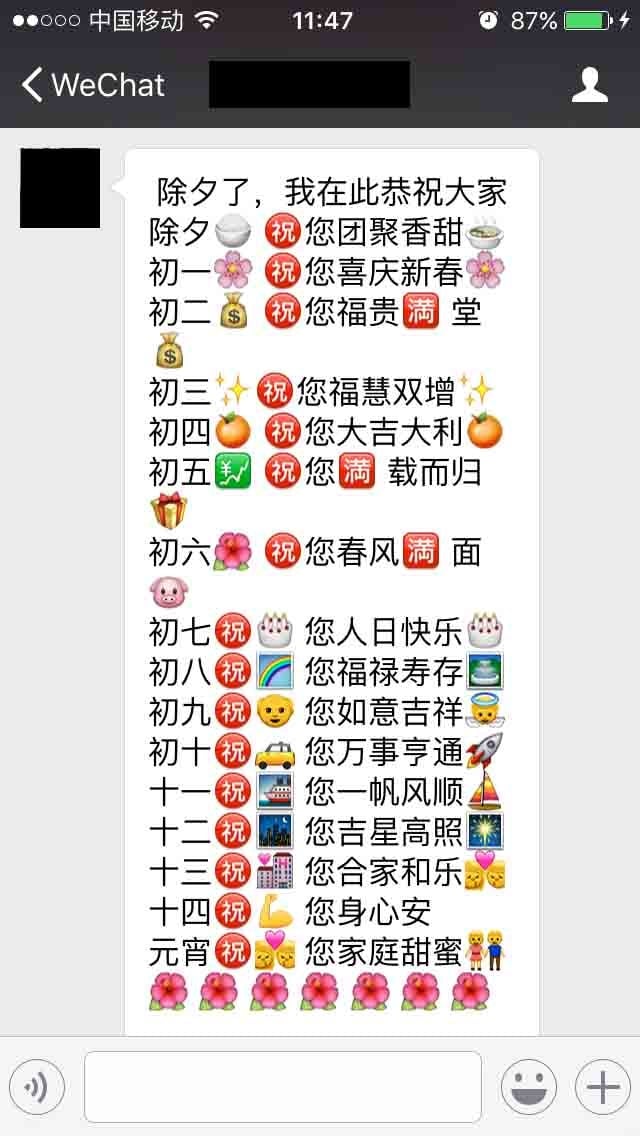
Money
Also in the run-up to the main event, significant sums of money exchange hands. Whether over a game of mahjong or in red envelopes, money flows from the old to the young, from bosses to staff, and between friends.
The friend mentioned above was carrying 300,000 yuan (over $45,000) in his satchel during dinner. Some of it will be used for mahjong, but most will be given to friends, family, and associates.
And with so much money floating about, images of red envelopes and cash start to appear on WeChat, too:
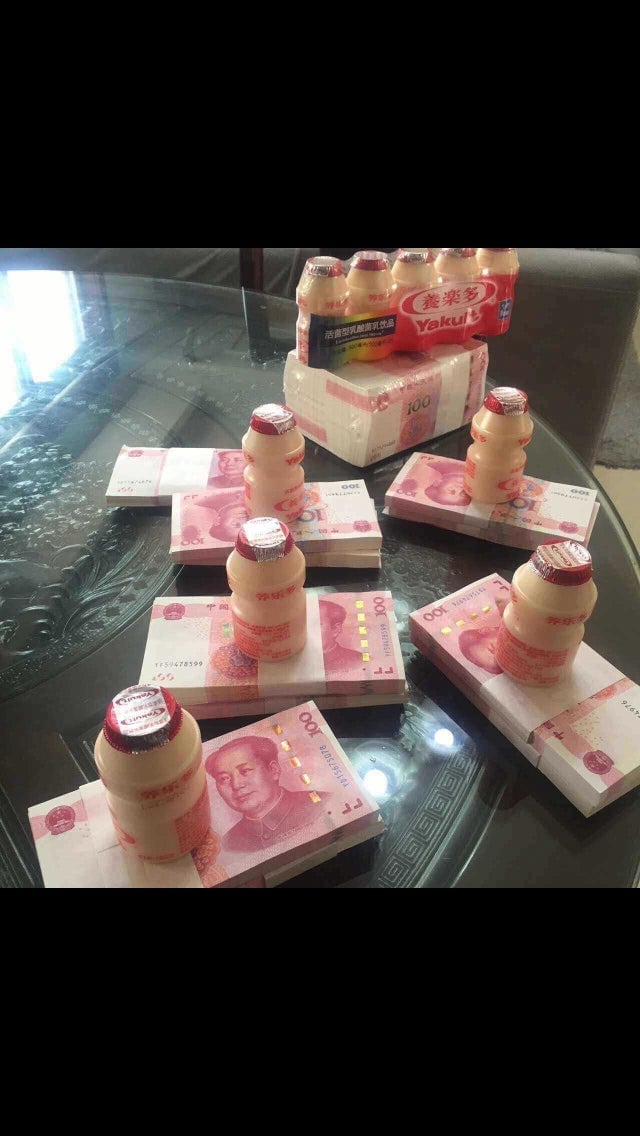
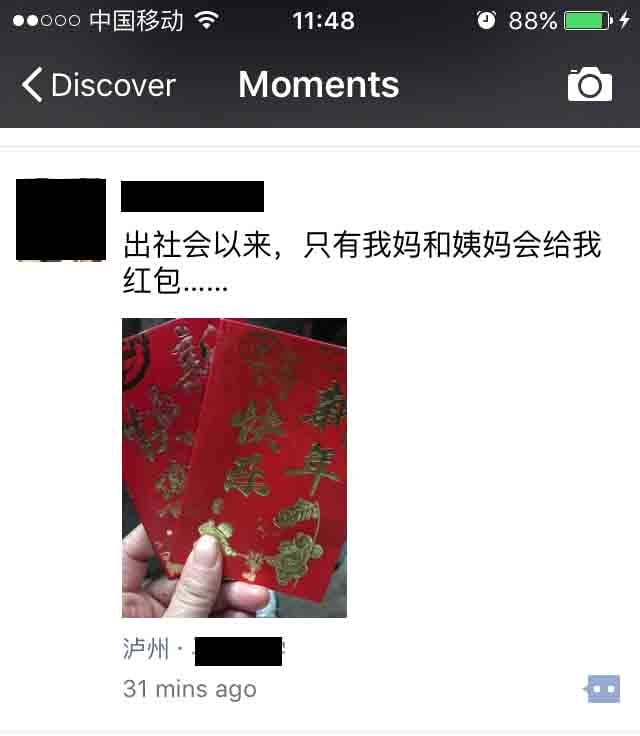
But that’s the old-fashioned way. WeChat has a modern alternative. Thanks to an excellent money-transfer function, friends can send digital red envelopes to one another.
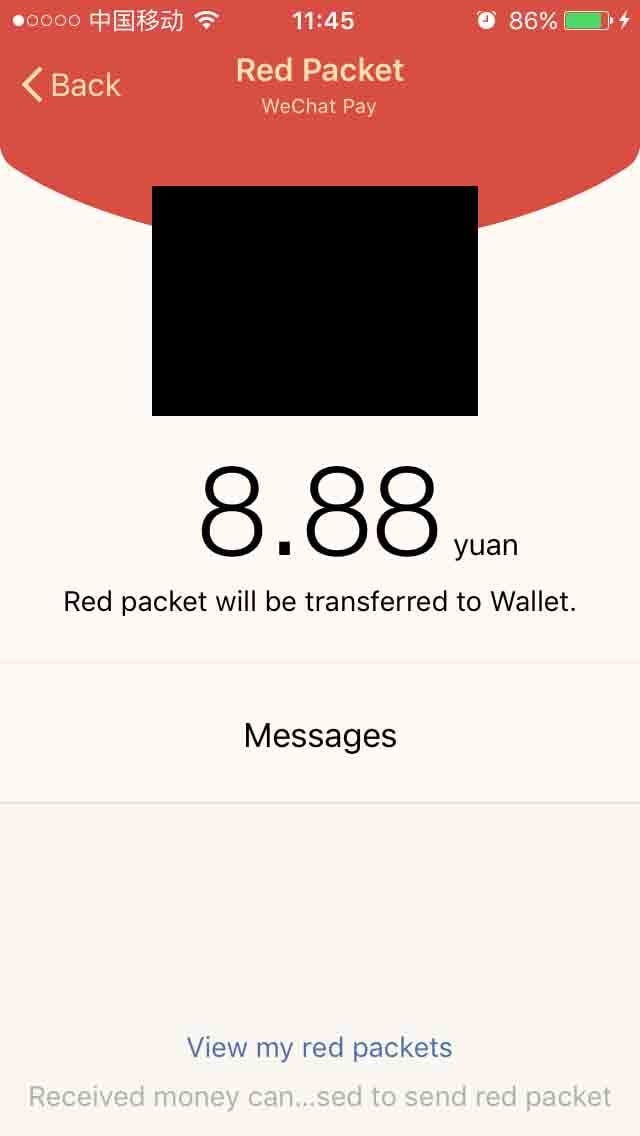
WeChat has even gamified the act of giving money. You can, for instance, post a red envelope with a certain amount of cash to a group chat, and the money will be divided to the first few people to click on the link. It’s not uncommon to find young Chinese users glued to the app frantically tapping on red envelopes during dinner.
One user, who was fed up with the ratio of insincere messages to red envelopes, made a stand.
On the WeChat post below, she asks friends not to send meaningless messages, but to send money instead:
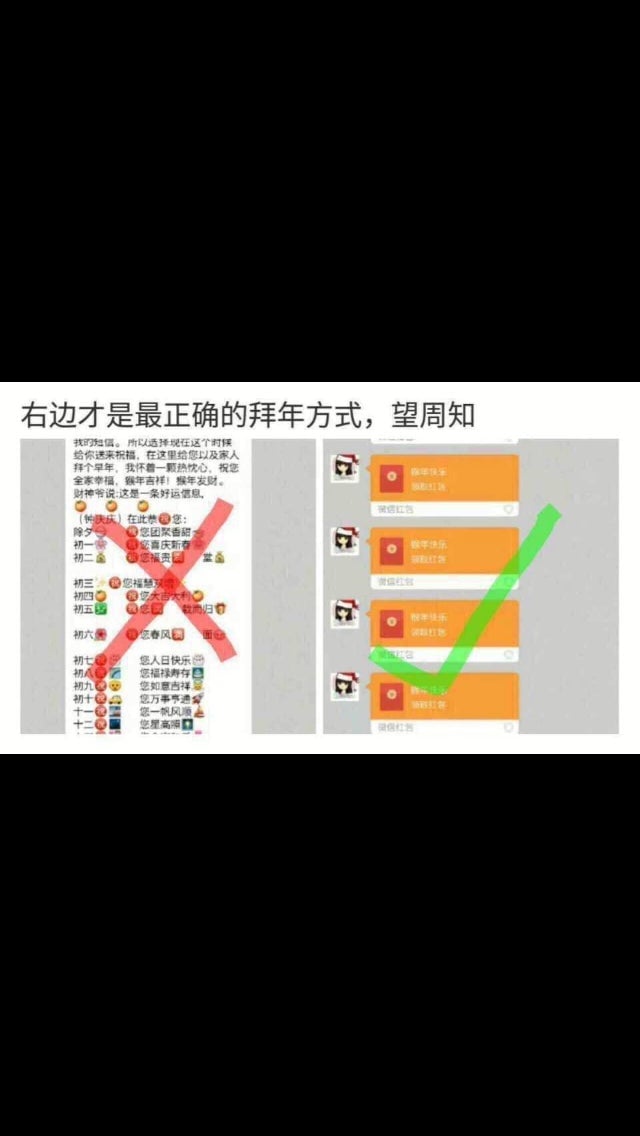
Food
Finally, the whole family will get together for a meal on new year’s eve. Much like Christmas and Thanksgiving in the US, when it comes to mealtime there is always too much food on the table. There are also certain rules about which dishes make the cut, and why. And once they hit the table, pictures make their way to WeChat:
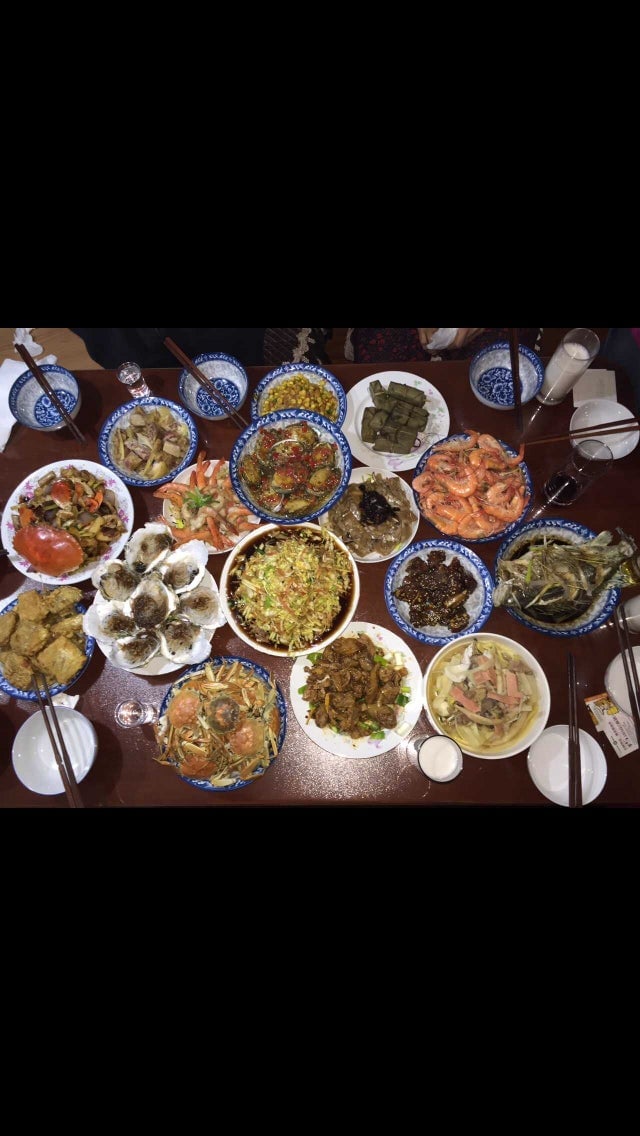
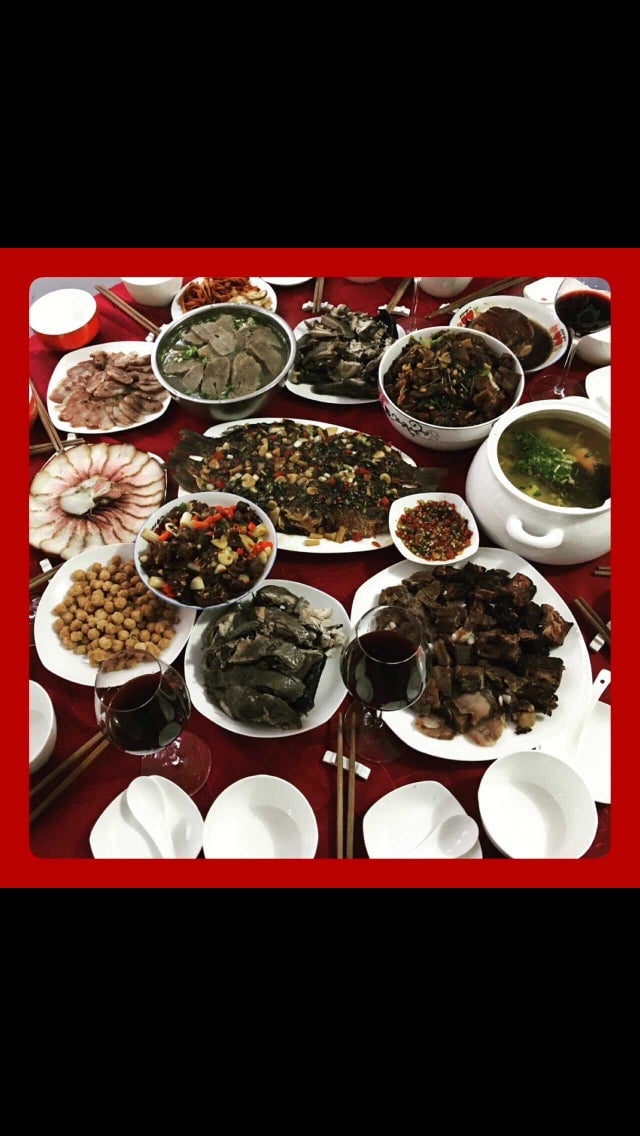

Thankfully, WeChat has yet to offer an online alternative to enjoying a meal together, in person.